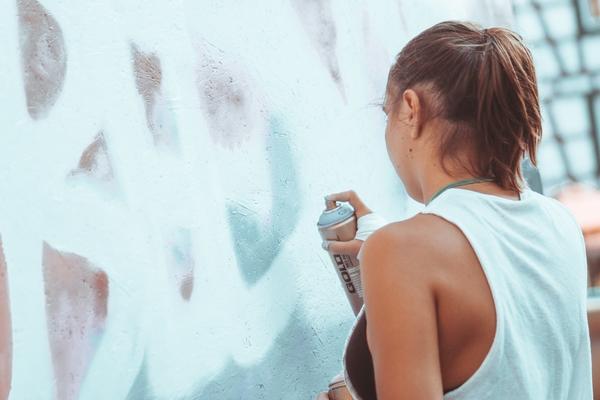Top Juvenile Criminal Defense Attorney in Miami, FL
Humans are prone to mistakes. Especially juveniles. Committing a crime at 17 and under is an action with serious consequences, one where a minor may not understand the difference between right and wrong. Nonetheless, the Florida juvenile justice system treats cases of minors aged 17 and under as “delinquent acts”. Delinquent acts are otherwise criminal acts that are deemed delinquent because they have been performed by minors.
Juvenile crimes may result in a minor being charged with a status offense or delinquency offense. With potential consequences having serious repercussions, it’s important to work with an experienced legal team to get the fairest outcome possible.
Top Juvenile Criminal Defense Attorneys Helping Juveniles Get a Second Chance in Court
We can help you and your family. The Miami juvenile criminal defense attorneys at Smith & Eulo can guide you through the criminal justice process for juveniles and help reduce any negative effects for you and your family. We work hard to reduce possible impacts on you or your child’s future. Contact an experienced Miami juvenile criminal defense attorney to discuss your worries and expectations.
Most Common Juvenile Crimes
It is important to note that there are two types of charges for a minor – a delinquency offense (any otherwise criminal offense committed by a juvenile) or a status offense (only applicable to people under 18 years old).
Delinquent Acts
A juvenile delinquent act is the more serious of the two, as they are crimes that would result in criminal charges if the offender were an adult. Here is a list of some offenses considered delinquent acts:
- Possession of a known illegal substance. Punishment may include drug counseling, house arrest, or juvenile detention.
- Threatening, stalking, harassment, or other acts causing distress in another person.
- Theft of money, possessions, or property from another person. Punishment usually results in a fine or restitution.
According to the statistics, theft has caused the most youth arrests out of any offense.
Juveniles in Miami, Florida may also be prosecuted in court for charges such as possession of cannabis (20 or fewer grams of the named drug), battery, trespassing, stealing, and resisting an arrest with no violence.
Status offenses typically include lesser crimes such as possession of alcohol. They can be charged with a misdemeanor in Florida, and they may have to pay $500 or may face jail time (a generally short sentence).
- Curfew violations. In Florida, the curfew is 11 PM to 5 AM Sunday through Thursday
- Possession of alcohol by a minor
- Students miss 15 or more days of school in a 90-day window. The offense can be tried as truancy and may be punished with counseling and community service
What can a juvenile expect as punishment?
It’s expected for minors to make mistakes. The legal punishment for these mistakes varies depending on the severity of the offense, the arresting officer, and other circumstances. The main goal of punishment is to discipline the youth in question and prevent them from committing any future crimes. The penalties can be informal or formal actions.
Informal Action
Some police officers would rather not subject minors to the juvenile delinquent system. When this is the case, the officer may choose to forgo issuing a formal arrest and filing a case. Instead, they may issue a warning, and release the offender back into their parent’s custody.
The officer may choose to bring the case to court but may plead with the judge to forgo a formal hearing. The judge may then issue a penalty like counseling or community service and avoid any charges from entering the minor’s permanent record.
Formal Action
If the offense is a serious crime, the police may issue a formal arrest, and the prosecutor may file formal charges, in which case it will go to juvenile court. Typically, the youth is to be presented in front of the judge within 24 hours of arraignment, and the judge will hear the case from the prosecutor and defense attorney.
Minors are not subjected to a trial by jury; however, delinquent cases are typically approached in a holistic way, taking one’s family situation into account, and learning about the offender’s background and prior incidents to rule an appropriate punishment. Based on all these factors, the case can be settled in a few different ways.
- Adjudicatory hearing is where the judge will hear the case in a formal way, often when the crime is serious, or the minor is guilty.
- A plea agreement is where the offender pleads guilty or no contest in exchange for lesser charges. In some cases, the judge may rule for counseling or probation in order to avoid harsher punishments.
- Diversion program where the case is diverted, but the court oversees the minor’s punishment, typically rehab, counseling, community service, or restitution. Formal charges are sometimes dropped if an agreement is reached for another form of punishment.
Contact Experienced Juvenile Defense Lawyers at Smith & Eulo
Minor’s dealing with juvenile charges can suffer an emotionally exhausting, stressful, and traumatic experience. We’re here to make sure your legal case goes as smoothly and stress-free as possible.
If you or your loved one find themselves in a situation where you are being accused of juvenile crime? Call us right away at 786-206-1296 to speak with a qualified legal professional or fill out the contact form on this page. We’re available 24/7, we offer free initial consultation and payment plans. In addition to our Miami office, we have offices in the following cities across the state of Florida:
- Kissimmee
- Jacksonville
- Sanford
- Ocala
- Clearwater
- Orlando
- Fort Myers
- Daytona Beach
- Fort Lauderdale
- Lakeland
- Sarasota
- Melbourne
- Tampa
*Additional Orlando Florida & Orange County Legal Resources
